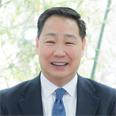The current disruptions on the Korean peninsula can only be understood in the context of the Japan, South Korea and China’s shared desire to return to normalcy.
The state of affairs in East Asia since 1945 has been defined by the presence of “abnormal” arrangements that have metastasised into today’s volatile situation. How we deal with the Korean and Japanese desire to become normal nations is the key to understanding and shaping the future of East Asia.
Behind their push is a dissatisfaction at having to depend on another nation for defence. As Japan and South Korea see themselves, they are not whole, they are not complete, they are not one – they are not fully sovereign so long as they are not self-sufficient. Thanks to these deficiencies, South Korean and Japanese nationalists have capitalised on an appeal to a reinvigoration and resuscitation of a romantic past that can be appealing, powerful, potent.
The bushido doctrine in Japan and the uri minjok sentiment in Korea share an emphasis on ethnic and cultural unity, continuity, and tradition. It is a common, shared unitary ethos that can bind and overcome class divisions and regional differences, no mean feat in Asian societies. This ethos is more powerful than any electoral mandate. It is not a temporary political victory, but a permanent reflection of a nation’s culture, history and tradition. What do mainstream political forces in South Korea and Japan (on both the Left and the Right) say when confronted by those compatriots who ask: “Are you against handling our own matters as a truly sovereign nation?”
The Korean peninsula is far from normal. A unitary race and culture has been split in half since 1948. Both North and South claim to be the sole and legitimate government for all of the territory on the Korean peninsula. The US retains operational control over the latter’s armed forces in times of war. Half a century after the Korean War, there is only an armistice – not a peace treaty.
The armistice was signed by the head of the United Nations command in Korea Mark Clark, Kim Il Sung and Chinese military leader Peng Dehuai. Syngman Rhee, the President of South Korea, refused to sign for fear that it would undermine and delay Korean unification, but also because it would leave open the option of reunifying the nation under South Korean auspices. If any politician on the Left or the Right in South Korea taps into this dormant line of thinking, watch out. Such a move would constitute a crucial shift towards South Korea developing into a normal, fully sovereign country.
Neither is Japan a normal country. Constitutionally, it may not resort to the use of force. It cannot retain an offensive capability. History looms large in its contemporary politics and its failure to put its past behind it by confronting and debating it (as in Germany). Unless Japan’s Self-Defense Forces (SDF) can do what their name implies, and unless it can boast of a true Ministry of Defense or a true intelligence organisation, it cannot become a normal nation.
To be sure, Japan is an economically advanced nation. And its SDF takes part in peace-keeping missions in Afghanistan and Iraq, supports Nato operations and participates in war game exercises. But it cannot exercise the most rudimentary and fundamental aspect of sovereignty – the sovereign right to conduct a war. Such a situation cannot hold indefinitely.
China is a superpower, but like Korea and Japan, it isn’t normal either. It may not have irredentist claims or extra-territorial ambitions but China does not believe it is completely “normal” or whole. The job is unfinished. Hong Kong and Macau returned to the fold after decades of foreign rule. Taiwan is the last piece of the territorial puzzle.
Dig a bit deeper into the philosophical roots of China’s economic dynamism, and you can see what makes the country tick. The more China develops economically, the likelihood of a rise in anti-foreign (not necessarily anti-Western) sentiment increases. During the Boxer Rebellion, the Chinese threw stones and wielded bamboo sticks. Buttressed by state capitalism, they now use sovereign wealth funds to acquire minerals and deposits all over the world, especially in Central Asia, Africa and Latin America.
As internal grievances, fostered by domestic economic trouble, increase, Chinese political authorities will be tempted to redirect such pent-up socio-economic steam. The Chinese have an obsession with not feeling powerless. And, rather than advancing a sense of individualistic freedom, the internet has boosted a sense of wounded national pride.This nationalism taps into past historical cultural denigration and envisions a future in which pride stems from China’s superpower status. China also seeks to return to a full, complete, unified normal state. China believes it is only a matter of time before Taiwan returns to the fold.
History does not repeat but it sometimes does rhyme. It is worth recalling that the urge for normalcy was the driving force and appeal of nationalism in the 1930s. This desire to return to a purer, more wholesome, complete statehood and unified society undermined and de-legitimised the very foundations of pluralistic, diverse, and cosmopolitan Weimar Germany and Taisho Japan, and contributed to the rise of extreme nationalistic sentiments that had serious consequences for Europe, Asia, and the rest of the world.
The desire to return to normalcy will be the driving force in East Asian geopolitics for the foreseeable future. And it will determine the balance of power in the region for years to come.
* This article was published on August 10 at CapX, a British online news website. The views expressed herein do not necessarily reflect the views of the Asan Institute for Policy Studies.

 Facebook
Facebook Twitter
Twitter